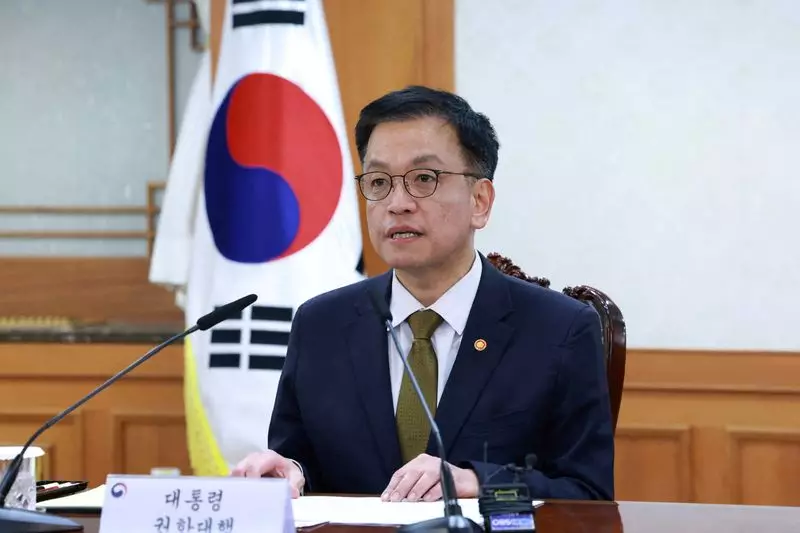As South Korea enters a new chapter in its diplomatic relations with the United States, the acting president, Choi Sang-mok, has emphasized the necessity for a more reciprocal partnership with Washington, especially in light of the Trump administration’s policies that could affect the region’s economic landscape. With America’s focus shifting under a returning Trump presidency, the South Korean government aims to not only reinforce but also elevate the strategic alliance between the two nations. Choi’s pledges signal a critical juncture for Korea, which is grappling with its unique internal political challenges while seeking a stable footing internationally.
The recent political upheaval in South Korea, stemming from the impeachments of key leadership figures, has left the nation in a precarious position. Choi’s role as acting president since late December marks a transitional phase for South Korea, compelling him to navigate through political instability while dealing with external pressures from the U.S. This period is pivotal, as Choi seeks direct communication with President Trump, which has yet to materialize—a sign that initial diplomatic exchanges may require careful management.
One of the foremost issues on the table is trade, particularly concerning tariffs and electric vehicle (EV) policies proposed by the Trump administration. Choi has indicated that the South Korean government will meticulously analyze these prospective measures, which are poised to impact the country’s economy significantly. Last year, South Korea recorded a staggering trade surplus with the U.S., raising fears that Trump may resort to imposing trade curbs to adjust this imbalance. The possibility of new tariffs, especially on vital imports, necessitates a proactive stance from South Korea to safeguard its economic interests.
The implications of these policies reach beyond immediate economic metrics. For instance, the South Korean stock market has already exhibited turbulence in response to announcements about potential tariffs. As observed, the benchmark KOSPI index, which measures market performance, faltered following Trump’s tariff declarations affecting neighboring countries—underscoring the interconnectedness of the regional economy. In addition, anxiety within the South Korean automotive and battery sectors has amplified as industry leaders anticipate the ramifications of changes in U.S. EV subsidy policies, prompting swift corrections in share prices.
Choi’s diplomatic strategy is not only about managing challenges but also about enhancing South Korea’s visibility on the international stage. Notably, the South Korean ambassador to the U.S., Cho Hyun-dong, attended Trump’s inauguration ceremony, serving as the formal government representative. This participation signals a commitment to maintaining strong ties amidst political turbulence back home. Conversely, the absence of more prominent South Korean political figures at such a significant diplomatic event illustrates the challenges faced—particularly when comparing representation against other nations like China and Japan, who sent high-level delegates to ensure their interests remained front and center during this transition.
To compound the stakes further, issues surrounding defense cost sharing for U.S. troops stationed in South Korea—serving to deter North Korean threats—add a layer of complexity. Trump’s previous demands for increased financial contributions from South Korea raise concerns regarding national security expenditures and the resultant strain on South Korean finances. Therefore, the diplomatic equation requires careful calibration as Choi and his administration contemplate future negotiations involving American military presence in the country.
In the arena of international relations, timing is essential, and South Korea is at a formative crossroads. As Choi seeks to bolster the Korea-U.S. alliance based on shared values and mutual interests, his government must also navigate the choppy waters of internal and external political dynamics during this new term of Trump. The emphasis on mutual cooperation, embodied by Choi’s hopeful messaging, could be the lifeline South Korea needs to stabilize both its domestic political environment and its economic relations abroad.
While South Korea stands at the precipice of a renewed alliance with the United States, the intricacies and implications of Trump’s second administration cannot be ignored. Balancing domestic politics, international diplomacy, and economic integrity will require not just a robust strategy but also an adaptable mindset—allowing South Korea to not just survive, but thrive, in the ever-evolving geopolitical landscape.

